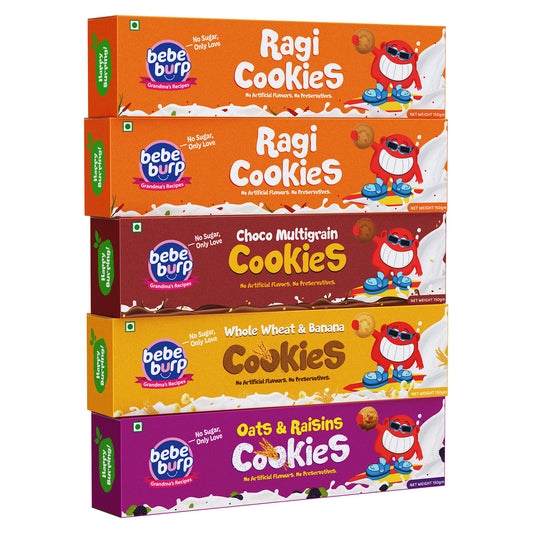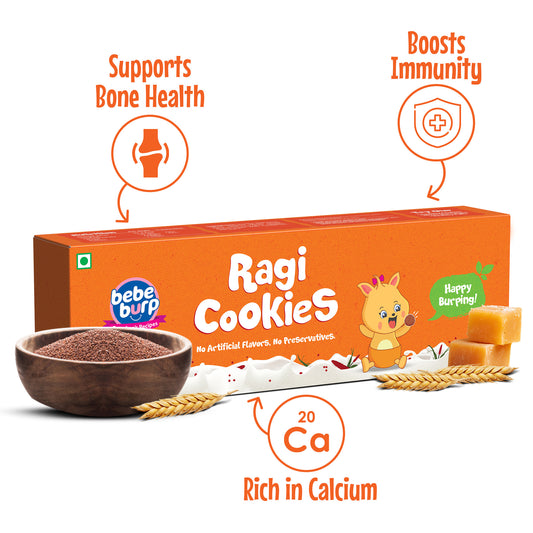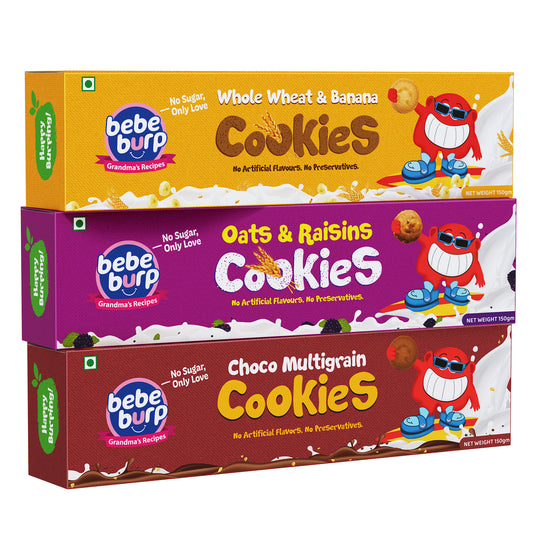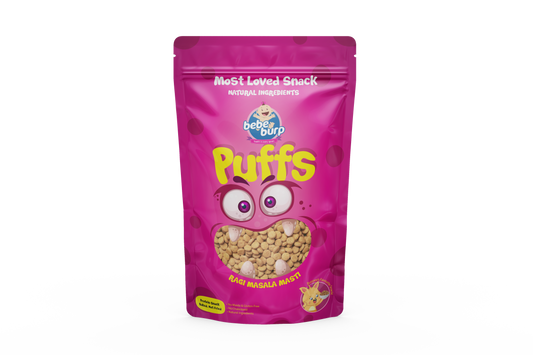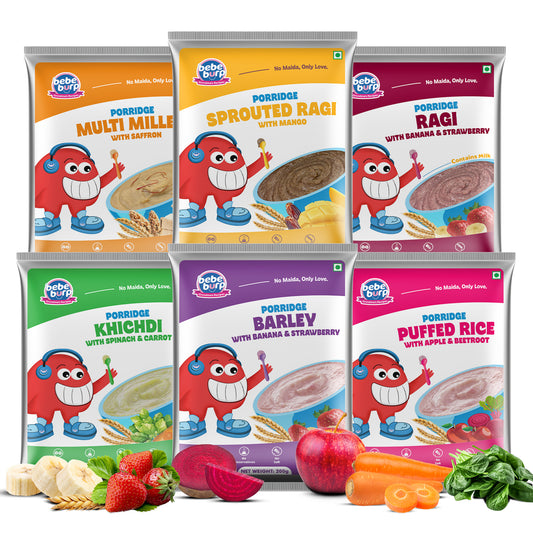Did you know that adding sugar to the diet of children under the age of 2 increases their chances of developing health problems later in life? According to the American Heart Association, even minimal added sugar in the very early years of life promotes the development of obesity and chronic health issues.
As a parent, you want to raise your child in the best possible way, and knowing how sugar will affect their development will help you make informed decisions.
In this article, I will tell you about the science of sugar related to babies, sources of hidden sugar in baby food, and practical measures to ensure your child has a balanced diet.
Understanding Sugar's Impact on Infant Health
Sugar can affect essential growth patterns in an infant's thin body structure. Here's how:
Tooth Decay: Estimates suggest that any sugar intake can result in tooth cavity development for growing teeth.
Digestive Strain: Intake of sugar modifies gut bacterial populations, which results in bloating or abdominal distress.
Cravings and Addiction: When exposed to sugar during the early stages, the brain develops conditioned cravings for sweet food items.
Did You Know? The Pediatric Research study demonstrated that infants who drink sugar before reaching age two will develop obesity at age five at a 30% increased rate.
Hidden Sugar Sources in Baby Nutrition
Some baby foods that appear healthy do not deliver what is beneficial to your little one.
Many baby foods, juices, and snacks contain hidden sugars, which are discreet components.
Despite their secret nature, baby health risks and eating preferences form due to these sugars.
The position of these unhealthy ingredients within baby food products can be identified, along with the explanation for their undesirability.
1. Processed Baby Foods
Cereals: Additions of sugar in baby cereal products exist because these sweeteners help the food taste more appealing.
Tip: Consuming no-added-sugar items or preparing food alternatives, including oats, is preferable.
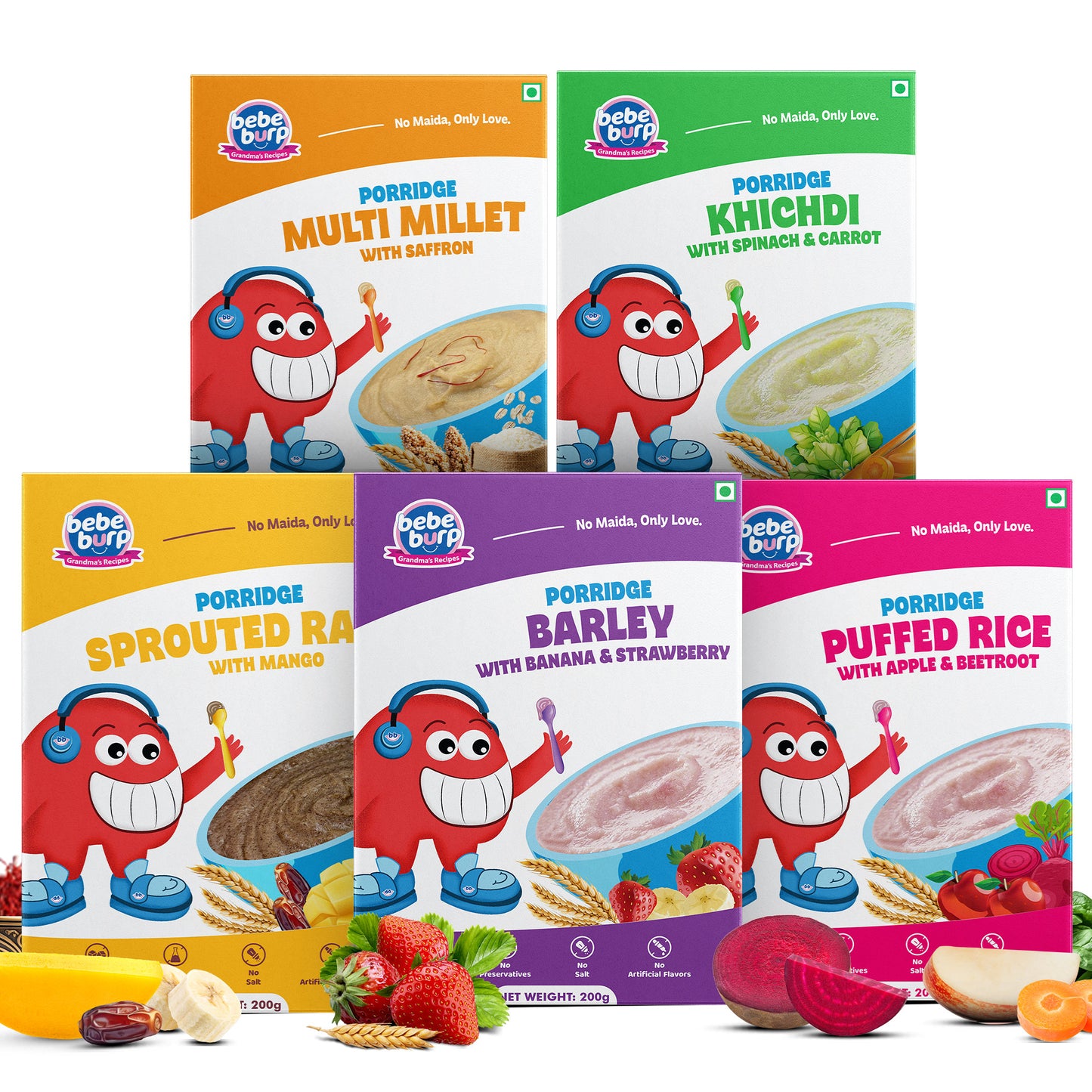
Porridge Combo Pack – 5 x 200g
A nutritious combo of our popular porridges, packed with vitamins & minerals for your child's growth and development.
Rs. 1,299
Buy NowYoghurts: Flavored yoghurts give your infant calcium benefits, yet these products contain too much sugar
Tip: Plain yoghurt is best for mixing it with mashed fruits.
Baby Food Purees: Such products frequently have fruit concentrates or juices added, elevating the sugar content.
Tip: Use purees made from fresh fruits and vegetables.
2. Juices & Sweetened Beverages
Fruit Juices: Even fruit juice with no added sugar contains a lot of sugar while lacking fibre.
Tip: Serve whole fruits or juice mixed with water.
Sweetened Drinks: Milk with flavours, sweetened teas, and sodas contain high amounts of sugar.
Tip: Water, breast milk, or formula are more suitable for hydration.
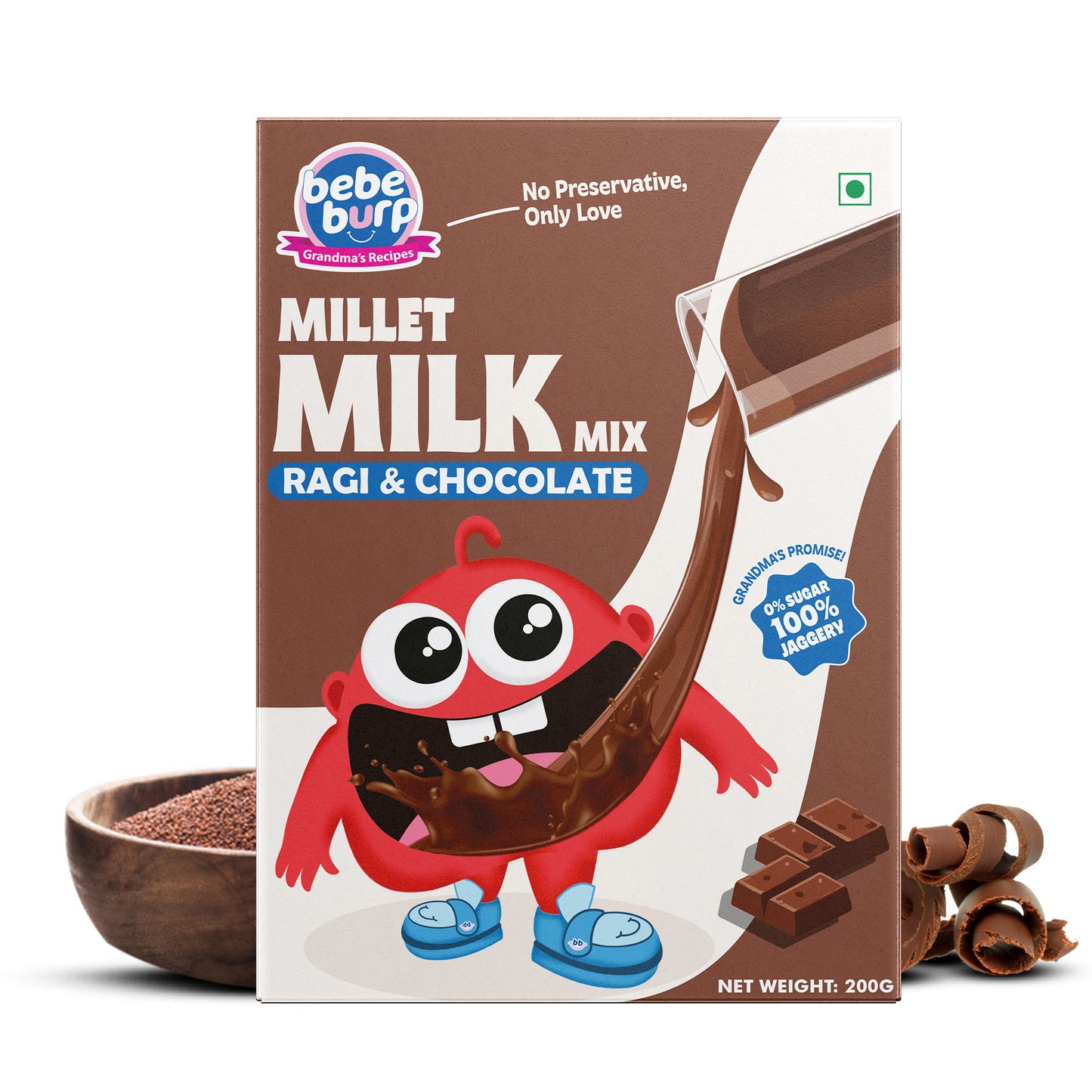
Millet Milk Mix – Ragi Chocolate 200g
Ragi, jowar & bajra in a chocolaty blend with 6g protein per serve. With DHA & jaggery – for strong bones & smart minds!
Rs. 349
Buy Now3. Other Hidden Sugar Sources
Bread: Even whole-grain bread can contain sugar due to its taste.
Tip: Purchase bread with no added sugars or bake them yourself.
Protein Bars: Some advertising "healthy" protein bars contain a hefty amount of sugar.
Tip: Look at the ingredient list for bars with little sugar and more natural ingredients.
Condiments & Sauces: Sauces like ketchup, BBQ, and salad dressings hide sugars.
Tip: Use homemade sauces or those sold with no sugar added.
Infant Formula: Most infant formulas, especially those made in the US, contain a lot of sugar syrup.
Tip: Select the formulas lacking added sugars or corn syrup.
Why Hidden Sugars are Harmful
Health Risks: Having too much sugar can cause an individual to become obese or get tooth decay and may even raise the chances of diabetes.
Taste Preferences: Serving sugary food to babies at an early age will make it harder for them to enjoy healthier and less sweet foods later on.
Nutrient Deficiency: Out of the many essential nutrients a baby needs for proper development, hidden sugars offer them devoid of calories.
How to Avoid Hidden Sugars
Cook Your Foods: Purees and homemade foods let you tailor your baby's meals to their needs.
Check Ingredients: Always monitor ingredients for any added sugars; "corn syrup," "sucrose," and "high fructose corn syrup” are examples of false terms.
Provide Water: Only offer water or breast milk and formula to quench your baby's thirst—do not give sweetened drinks!
Long-Term Health Consequences of Early Sugar Consumption
Starting sugar consumption early will establish conditions that may lead to multiple health problems.
The introduction of sugar to babies before the proper age brings the following health risks:
Increased risk of obesity: Babies who adopt a sweet tooth preference will likely develop unhealthy eating patterns as they age that contribute to obesity, along with all its health threats.
Tooth decay: Any sugar consumption, regardless of amount, can begin the process leading to tooth decay in young children.
Your newborn teeth show high sensitivity to sugar while the nutrient encourages dangerous bacteria multiplication inside their oral cavity.
Insulin resistance and Type 2 diabetes: Children who consume sugar frequently develop insulin resistance which creates difficulties for their bodies to process sugars and substantially enhances their risk of developing diabetes as adults.
Your child's future health depends on eliminating sugar consumption from the beginning of life because this strategy protects him or her against health risks that lead to a healthier lifestyle.
Nutritional Alternatives to Sugary Foods
|
Alternative Option |
Nutritional Value |
Usage Suggestions |
|
Date Pulp/Date Powder |
Rich in iron, potassium, calcium, and other nutrients. |
Soak fresh dates for 3-4 hours, then puree them or use dried date powder to add to porridge, fruit purees, homemade desserts, smoothies, or milk. |
|
Honey |
Contains antifungal, antibacterial, and antiseptic properties, along with active enzymes, amino acids, vitamins, minerals, etc. |
Can only be given to babies over one year old. Use it in place of sugar in baked goods like cookies and cakes. |
|
Apple Puree/Sauce |
Rich in dietary fiber and nutrients, with a natural sweet taste. |
After 6 months of age, apples can be introduced. Use homemade unsweetened apple puree or sauce to add to oatmeal or as a snack. |
|
Banana Powder |
Contains potassium, calcium, phosphorus, etc. |
Use very ripe bananas to make banana powder. Add to porridge, baked goods, or yogurt. |
|
Palm Sugar |
Rich in potassium, zinc, manganese, copper, vitamins, and phytonutrients. |
Suitable for babies over 6 months old. Add to milk, porridge, puddings, etc., as a substitute for white sugar. |
|
Coconut Sugar |
Contains protein, calcium, potassium, etc., and has a lower glycemic index than refined sugar. |
Add baked goods like cookies, cakes, and puddings. |
|
Fig Puree |
Rich in calcium, iron, magnesium, etc. |
Use homemade unsweetened fig puree to add to porridge, fruit purees, or desserts. |
|
Maple Syrup |
Contains magnesium, calcium, potassium, etc. |
Use pure maple syrup instead of refined sugar in baked goods or as a topping for pancakes and waffles. |
|
Raisin Syrup |
Contains vitamin B, iron, potassium, etc. |
Use raisin syrup in place of refined sugar in baked goods or as a sweetener for beverages. |
|
Apricot Powder |
Rich in iron, copper, cobalt, etc. |
Use homemade unsweetened apricot powder to add to porridge, fruit purees, or desserts. |
|
Brown Rice Syrup |
Composed of soluble complex carbohydrates, maltose, and glucose, it releases energy gradually. |
Use as a sweetener for toast, whole grains, sweet potatoes, squash, or tea. Also suitable for sweetening salad dressings, soups, and sauces. |
|
Agave Syrup |
Sweetness similar to a mix of maple syrup and molasses. |
Use in place of refined sugar in baked goods or as a sweetener for beverages. |
|
Fruit Compote |
Made from various fruits, it contains rich vitamins and dietary fiber. |
Prepare sugar-free fruit compote and stir into yogurt or oatmeal, or use as a topping for toast. |
|
Mashed Banana |
Bananas are rich in potassium, vitamin C, and dietary fiber. |
Use ripe mashed bananas to sweeten muffins, baked oatmeal, and other dishes. |
|
Pumpkin Puree |
High in dietary fiber, vitamins, and minerals. |
Use homemade unsweetened pumpkin puree to add to porridge, baked goods, or as a side dish. |
|
Avocado Mash |
Avocados are rich in healthy fats, vitamin E, and folate. |
Use avocado mash as a substitute for butter or mayonnaise, or mix it into sauces and dips. |
|
Peanut Butter or Nut Butter |
Rich in protein and healthy fats. |
Choose nut butter made with only nuts and salt. Use as a spread for toast or mix into oatmeal. |
|
Cinnamon and Other Spices |
Add flavor to food without increasing sugar content. |
Sprinkle a little cinnamon, nutmeg, or ginger to enhance the taste of food. |
Strategies for Sugar-Free Baby Nutrition
When you are a parent restricting all sugar from your baby's food intake creates a stressful feeling. Several basic methods exist for sugar restriction during babyhood.
Read labels carefully: Always examine the ingredient lists on baby food packages to confirm absence of added sugars together with artificial sweeteners.
Cook at home: The method of home-made baby food preparation enables you to eliminate sneaked sugars in addition to serving your baby fresh nutrient-dense foods.
Avoid sugary drinks: Only water and breast milk (or formula) should be available to your baby throughout his first year of life. rámilk and flavored water must be avoided since they typically include significant sugar content.
Gradually change: Your baby should step down from sugary tastes one flavor at a time so their taste buds can accept less sweet food.

Natural Sweetener Combo – Date & Jaggery Powder 200g
A healthy combination of natural dates and jaggery powders for sweetening, packed with vitamins and minerals for a wholesome diet.
Rs. 558
Buy NowOvercoming Challenges in Sugar-Free Feeding
Transitions to sugar-free diets for infants can be challenging at the moment their babies recognize sweet foods in their environment.
The following steps present ways to handle such difficulties:
Patience is key: The familiar sweetness in food causes babies to dislike food that lacks these taste preferences.
Direct overusing whole foods and consistency will help your baby develop a taste preference for these natural foods.
Social influences: Your baby will receive sweet treats from relatives and people close to them.
Explain nicely why you stay away from sugar while sharing your approach to eating healthily.
Make it fun: Stepping up your baby's food interest involves serving meals with creative food shapes and interesting vegetables.
Preferred food choices become more enjoyable since sugar-free options show similar taste appeal to sugar-containing food.
Expert Recommendations for Infant Nutrition
Pediatricians and nutritionists advise:
- No added sugar before age 2.
- Young children must consume high-iron foods like spinach and fortified cereals.
- Breastmilk and formula have priority over these drinks.
“Dr. Emily Chen, a pediatric nutritionist, explains that children who start a sugar-free diet early develop strong immune systems and protect their body systems."
Conclusion
Protecting your baby from sugar in their diets will influence their relationship with food throughout their entire life.
Your child's dietary efforts for life are sustained through your practice of avoiding hidden sugars while selecting nutrient-packed food choices based on the guidance of experts.


